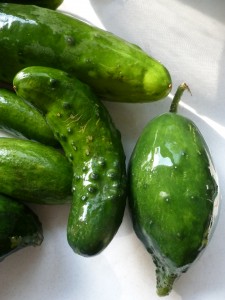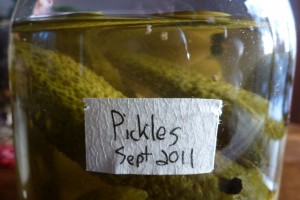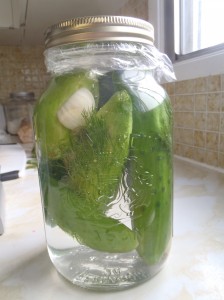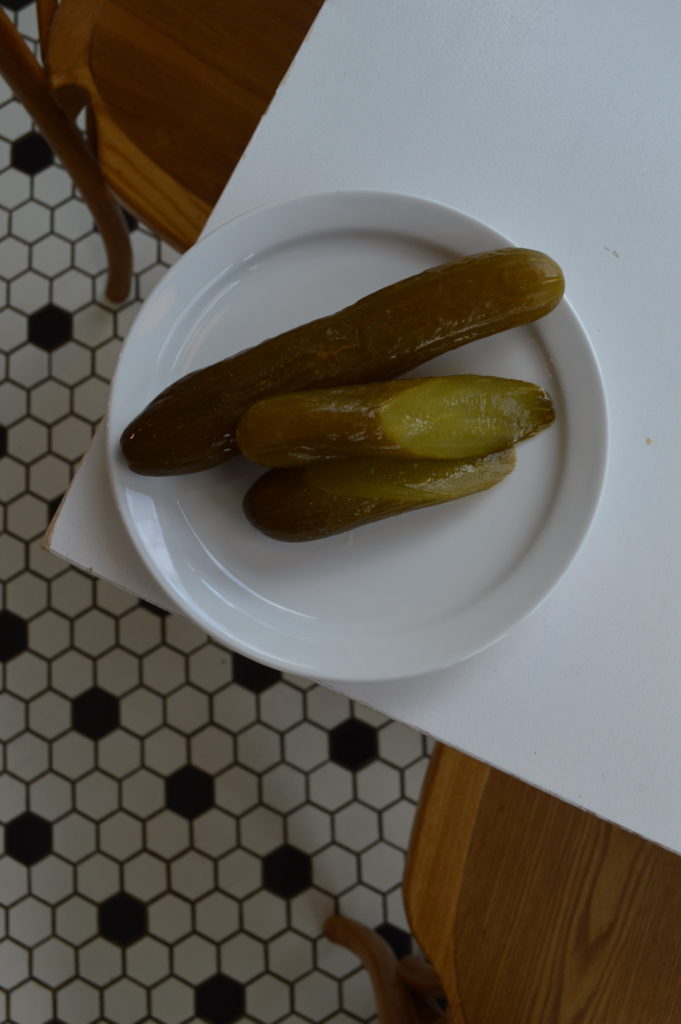
I had heard of kosher pickles many, many times in my life, but always assumed that they were just pickles that were, well, kosher, as in approved for consumption in Jewish dietary law. Turns out that is not the case, and kosher pickles are actually a particular style of pickle, one that is naturally fermented like those described in this post on lacto-pickles. If you are familiar with sauerkraut you are familiar with lactic acid fermentation. Anyways kosher pickles are the real-deal accompaniment to deli sandwiches like smoked meat or pastrami.
If you grew up on Bick’s, kosher pickles will seem strange. They have no sugar, in fact no sweetness at all besides whatever natural sweetness might … Continue reading.
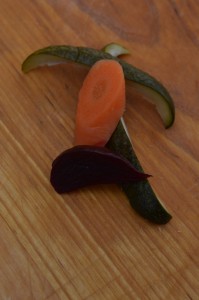
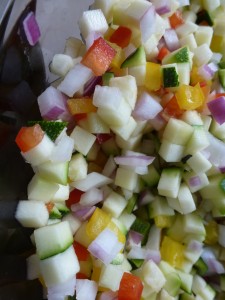 The following post is either going to blow your mind or convince you that I’m stupid.
The following post is either going to blow your mind or convince you that I’m stupid.